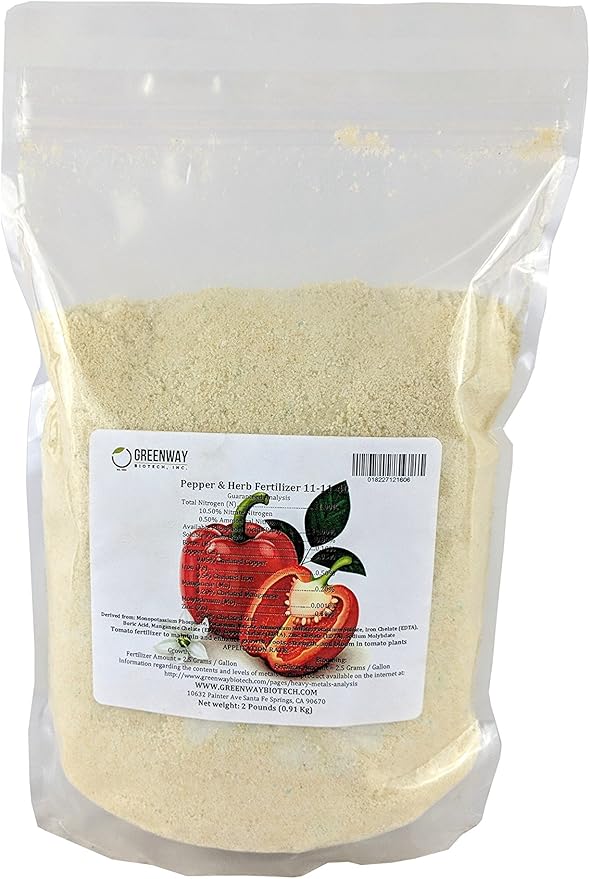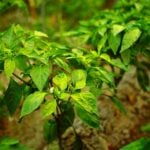Do pepper plants come back every year? Let’s get the answers to that here. Pepper is both classified as a fruit and a vegetable according to botany and culinary definitions.
It’s a great feeling to plant, grow, nurture, and then begin to harvest your vegetables. What is more tempting is wishing you could keep your healthy vegetables growing year after year. This applies to most pepper farmers, as the plant is a slow grower, which makes it desirable to want it to keep growing.
It will be nice if pepper plants do grow back every year. If you live in a region where the winter is not so serious, you can definitely give it a thought. The thing is, in most parts of North America and any other place where the winter is really serious, pepper plants won’t be able to survive if they are left outside.
The best thing is to bring your pepper plants indoors and provide them with the best indoor care, especially if they are the potted indoor variety.
Keep reading to get more answers to the question: Do pepper plants come back every year? You will also get some tips for keeping your pepper growing year after year.
Do Pepper Plants Come Back Every Year?
Normally, all kinds of pepper are grown as annuals by most growers. Pepper is sown, grown, picked, and then thrown into the compost heap when the season ends.
But the truth of the matter is that pepper plants are perennials, and if you grow them and give them in the appropriate conditions, they can grow every year.

Ideal Conditions to Help Pepper Grow Back Every Year
As we mentioned, pepper plants can grow every year if you provide them with good conditions. So, let’s take a look at how to be successful at growing peppers in any type of climatic condition.
1. The growing temperature
Peppers are perennials that can come back in the spring after being dormant in the previous season. This will be surprising to many North American gardeners. Peppers are mostly grown as annuals in the United States and most temperate regions in other parts of the world.
This is because the plant will die when temperatures dip low, especially during low winter temperatures and shorter days. Peppers can’t survive the cold winter let alone when it’s freezing cold.
In fact, during a temperature as low as 55 degrees Fahrenheit and below, it will be a waste of time sowing seeds directly into the
You can, however, proffer a solution of laying down black plastic mulch or other non-treated mulch to keep the
2. Soil and fertilizer type
The ideal
Breaking up the
Pepper and Herb Fertilizer 11-11-40 Powder 100% Water Soluble
For example, if the test shows that the
Read more about Can Compost Worms Survive Winter?
3. Availability of sunlight and water
For a successfully grown pepper plant, full sunlight of about six to eight hours must be available to the plants. Or rather, provide a grow light and make sure the
Pepper plants also need constant thorough moisture. This can be achieved by not letting the
And if you’re growing your pepper plants in sandy
4. Prepare your plants before overwintering
It is better to plant your pepper in pots or portable raised beds if you’re planning to save them for another year.
You can also re-transplant mature plants that were planted directly in the ground. However, re-transplanting pepper plants may lead to damaging the plants’ roots badly if you’re not careful.

5. Move pepper plants indoors
Peppers can’t tolerate frost; hence the temperature doesn’t need to become freezing cold before they begin to die off. When the temperature constantly dips low to around 55-65 degrees Fahrenheit, move them indoors.
It doesn’t even have to be inside the house. It could be a secluded spot or covered place that can shield the plants from the chilly temperatures.
So, when the sunlight your plants usually receive per day doesn’t stay constant at six to eight hours anymore, it indicates that your pepper plants should be moved indoors.
Also, when you move them indoors during frost, you can use a heating pad under your pot to provide heat.
Check out When To Harvest Broccolini – The Best Time
Perennial Pepper Plants: Cold-Hardy Pepper Varieties
There are cold-resistant pepper varieties, early maturers, and those that can adapt to many conditions.
So, choosing any of these types of varieties will also help increase your chances of being successful at overwintering and growing back every year. Gardeners in the northern region will love the idea of planting these varieties, especially in regions where they have short growing seasons.
There are also cold-tolerant varieties that can tolerate both cold and heat. You will also get to enjoy most of the cold-tolerant varieties because they are either mild or sweet.
So, examples of cold-tolerant pepper varieties are Ratund, Highlander, Chile peppers, Carmen, Ace, and Obriy.
Do Capsicum Plants Regrow?
You may be curious as to whether capsicum plants regrow, like other types of peppers. And the simple answer is: yes they do. It just requires both time and cares to ensure their regrowth. Let’s take a closer look at some top tips to ensure they make it through the winter.
- As soon as you notice the temperatures plummeting, you should place some hay bales around your plants, and ensure the plants are the same height.
- You’ll also need to remove any peppers from the plants too. At this point, you can cover the plants and bales with a layer of glass.
- When the frost is predicted, you may also want to cover it with a sheet, for an extra layer of protection.
- Check that your
soil is moist enough, and water when needed. - Once the weather begins to warm up, you can remove the glass, and then remove the hay bales once Spring hits. At this point, your capsicum is ready to regrow!
How Long Will a Pepper Plant Live?
When it comes to pepper plants, a range of factors can affect how long they’ll live. However, the average life span is around 3-5 years.
Some factors you’ll need to consider when extending the life of your pepper plant are as follows:
- Environment. The environment is the main factor. The more consistent the environment, the more likely your pepper plant will have a longer life. In fact, pepper plants have been known to last up to ten years when cared for adequately indoors. Your plants can last many years if grown outdoors too. However, you need to ensure they’re overwintered. If not, they will likely die before the next growing season.
- Plant species. Some species of pepper will survive longer than others, as it’s just part of their nature. For example, Rocoto and Manzano peppers are both varieties that have a long life expectancy.
How Tall Do Pepper Plants Grow?
Unfortunately, there is no set height that your pepper plants will grow, because it all depends on the variety of pepper that you’re growing. For example, some may grow to only 20 inches in height, whereas others can grow up to 6 feet in height. It’s important to research the type of pepper you’re choosing to grow before you plant it.
How to Overwinter Pepper Plants
If you’re looking for a quick guide to overwinter pepper plants, then look no further. Let’s take a closer look.
- Add
soil to your new pot; around 1-2 inches. - Bring your pepper plant indoors and remove any remaining peppers. You’ll also need to prune the plant.
- Remove all leaves from your plant, as well as the root ball.
- Use scissors to trim the roots and then place them in your fresh
soil . - Water thoroughly and place in a warm area, where the sunlight reaches.
- Monitor and prune weekly until the growing season comes around.
When to Overwinter Peppers
The best time to start overwintering peppers is before the first frost. You should never let the temperature of your pepper plants go below freezing, as they are unlikely to survive.
Will Pepper Plants Come Back After Winter?
Yes. As long as extra precautions and care are taken with your pepper plants, they absolutely can come back after winter. And are likely to give you peppers for years to come!

Conclusion: Do Pepper Plants Come Back?
To conclude answer your question; do pepper plants come back? Be rest assured that even if pepper plants are grown as annuals in most regions, you can successfully grow them as perennials.
Do you have any tips or tricks when it comes to ensuring that your pepper plants come back every year? If so, please feel free to let us know in the comments below. And remember, sharing is caring!
FAQs
How do I save pepper plants for next year?
You can save your pepper for the next year by supplying adequate growing conditions to your pepper plants. Pepper is naturally a perennial crop so it’s possible to grow them for the following year.
How many years can pepper plants live?
The duration pepper plant can live is between 1.5 years to 3 years. So, this shows that pepper plants are perennials if you provide them with the right growing conditions to live through another year.
Will pepper plants come back after winter?
If you expose your pepper plant to chilly temperatures, they may not survive. So, your pepper plant may not come back after winter. This is why you need to shelter your pepper plant if you want them to overwinter.






